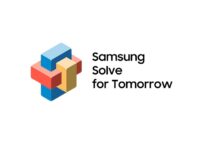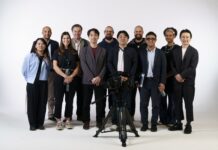A society lead by technology is rapidly transforming the way the youth use and digest digital transformation, both socially and on an educational level. As part of Acer Africa’s commitment to bring e-learning into the classrooms, together with the University of Johannesburg (UJ) hosted a 12-week technology crash course which was held as part of the university’s Workplace 4.0 Project, enabling students to think digitally, create and develop from their lecture rooms.
The Project
Entitled the FridayClub, these classes encouraged and taught students to code and learn the basics of the 4th Industrial revolution. Every week lecturers as well as Acer Africa met to work through various aspects of digital technology, with a specific focus on the Acer CloudProfessor as a teaching device. The students used the Acer CloudProfessor and Gigo kit to build various mechanical robotic items and program them to perform basic functions.
For example: Building a lift, or rack and pinion motor and then using the CloudProfessor to program it to perform a task. Students majoring in the Public sector were given first-hand experience in understanding how sensors and IoT will impact and benefit administration. One student who is currently doing her masters in farming crickets for food security, used the CloudProfessor as a prototyping tool and designed a model of a cricket farm that could be controlled through a mobile app to turn the heat on and off as needed.
Glenn du Toit, Acer Africa BYOC Digital Business Development explained, “The lessons focused on transformation and education around what is possible with the standard of technology we have available to us today. We conducted various practical lessons with students which demonstrated Blockly and Javascript as coding languages.” He adds, “The FridayClub at execution was as an experiment for the teachers and tech experts deploying this into the classrooms. Average classes run for 45 minutes up to an hour, so we had to monitor what we were able to achieve in this time and how much could be taught and learnt, in order to adapt our execution on a more permanent basis.”
Technoculture – Where the need lies
‘Technoculture’ as described by Dr. Arno Louw, Centre for Academic Technologies Laboratory at the University of Johannesburg (CATLab), is based on a mix of visual, written, and social media data that could be used in innovative ways to find solutions to emerging global problems. The question asked by many educators is whether students are sufficiently equipped to find these solutions and apply a trajectory to the process.
Acer Africa believe that transformation is needed in higher education among staff and students, where technology becomes an equaliser for 21st century survival in our Afro-technoculture.
Louw explains that, “The student’s backpack has been replaced with a smart device − the electronic device which provides the tools for access, teaching, learning, assessment, discovery, communication, leisure, etc. The use of electronic devices also encompasses the ability (skill set) to master and manipulate these devices over and above the digital skills needed to merely access e-content. Consequently, the art of e-learning is here to stay, and has evolved from future aspiration to daily habit.”
Acer CloudProfessor
The reason why the CloudProfessor was deployed as the programming tool for this project is due to the fact that it ticked all the correct boxes needed for the experiment and class structure:
- Easy to use for beginners
- Lessons can be made more complicated for learners who have used technology before
- Its durable, functional and tough to be used by kids with hard grips
- The lessons were available and skills appropriate (i.e. easy to understand)
- A full lesson was accomplished in under 45minutes
“CloudProfessor is aimed at making technology accessible to everyone and moreover educating the current generation on how to code and use sensors and motors to build a digital solution for everyday problems,” explains du Toit.
He adds, “With CloudProfessor, we are able to give everyone the opportunity to see how easy it can be to design the next great innovation by combining actual sensors and motors and then choosing between a variety of programming languages, including JavaScript, as well as Blockly, to get their innovation programmed and working. This provides younger learners with the building and visual interface they need to start innovating in the new Internet of Things era.”
The Future of Education
Education solutions for real world problems is the future. The education system is the grass root level where these solutions are born and bred in an open learning environment.
“Electronic device manipulation skills, currently required by the workforce industry, entail customised coding and adding accurate moving parts to devices. The combination of these two skills is generally known as robotics. The CAT Lab established in 2017, endeavours to assist students and educators to learn and experiment on basic computer coding. This programming includes basic robotics,” says Louw.
“The biggest takeaway for UJ from the FridayClub was the learning how technology fits into the various careers learners have chosen to pursue and not limiting the education of the 4th Industrial revolution to only the engineering IT faculty and science faculties. The understanding that IoT and digital technology plays a role in every faculty needs to understood fully in order to bring in a new area of learning,” says du Toit.
While the 12-week project has ended, the Acer CloudProfessor and the CAT Lab team aims to extend the FridayClub to the wider community and to enthusiastic school learners in Soweto. Future endeavours for 2018 will include 3D printing, virtual reality (VR), holograms, and augmented reality (AR) in teaching and learning. A CAT Lab training room and open working space are also available for lecturers with WiFi access.
Provided by Acer SA




























